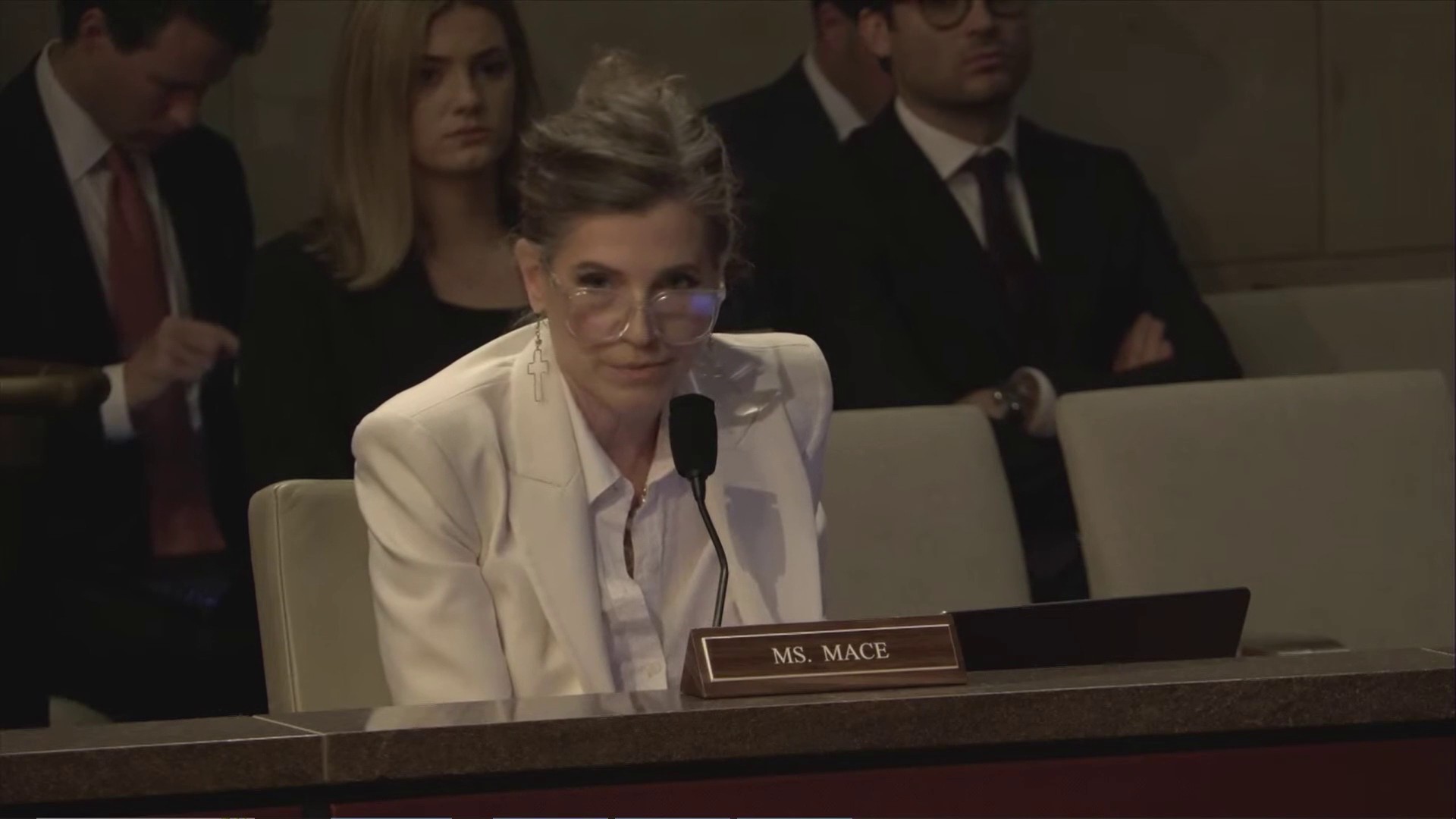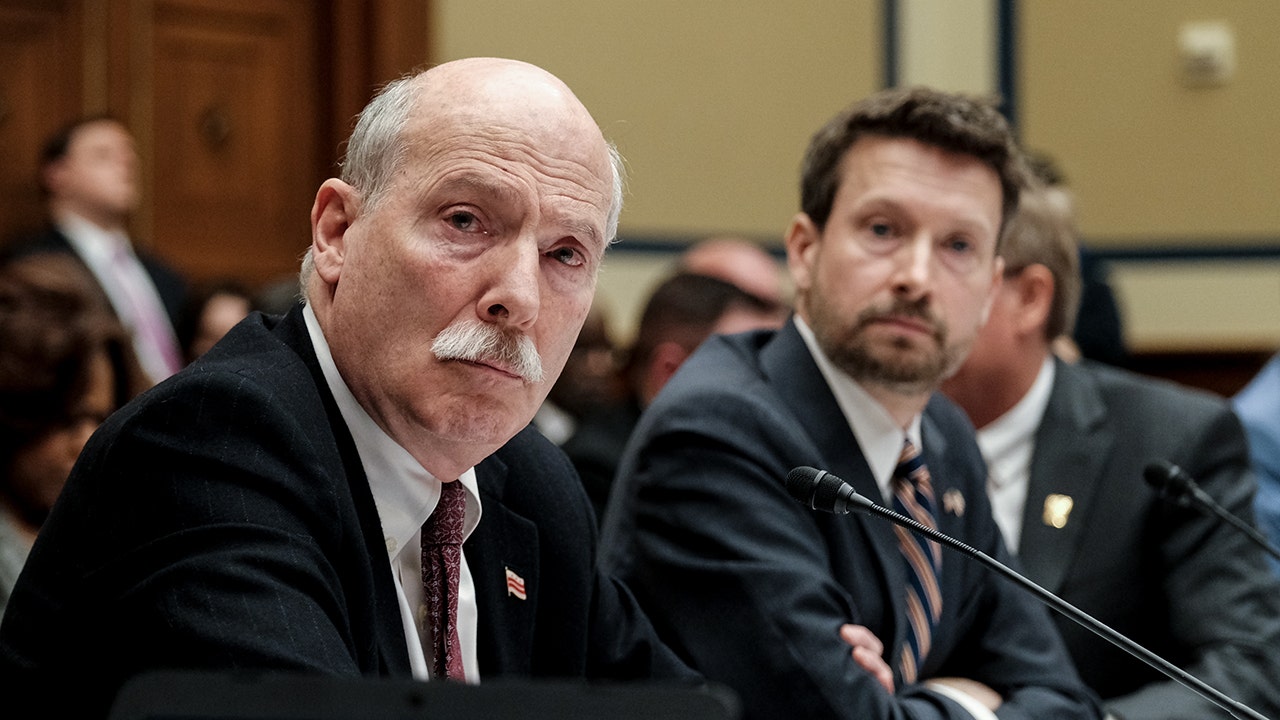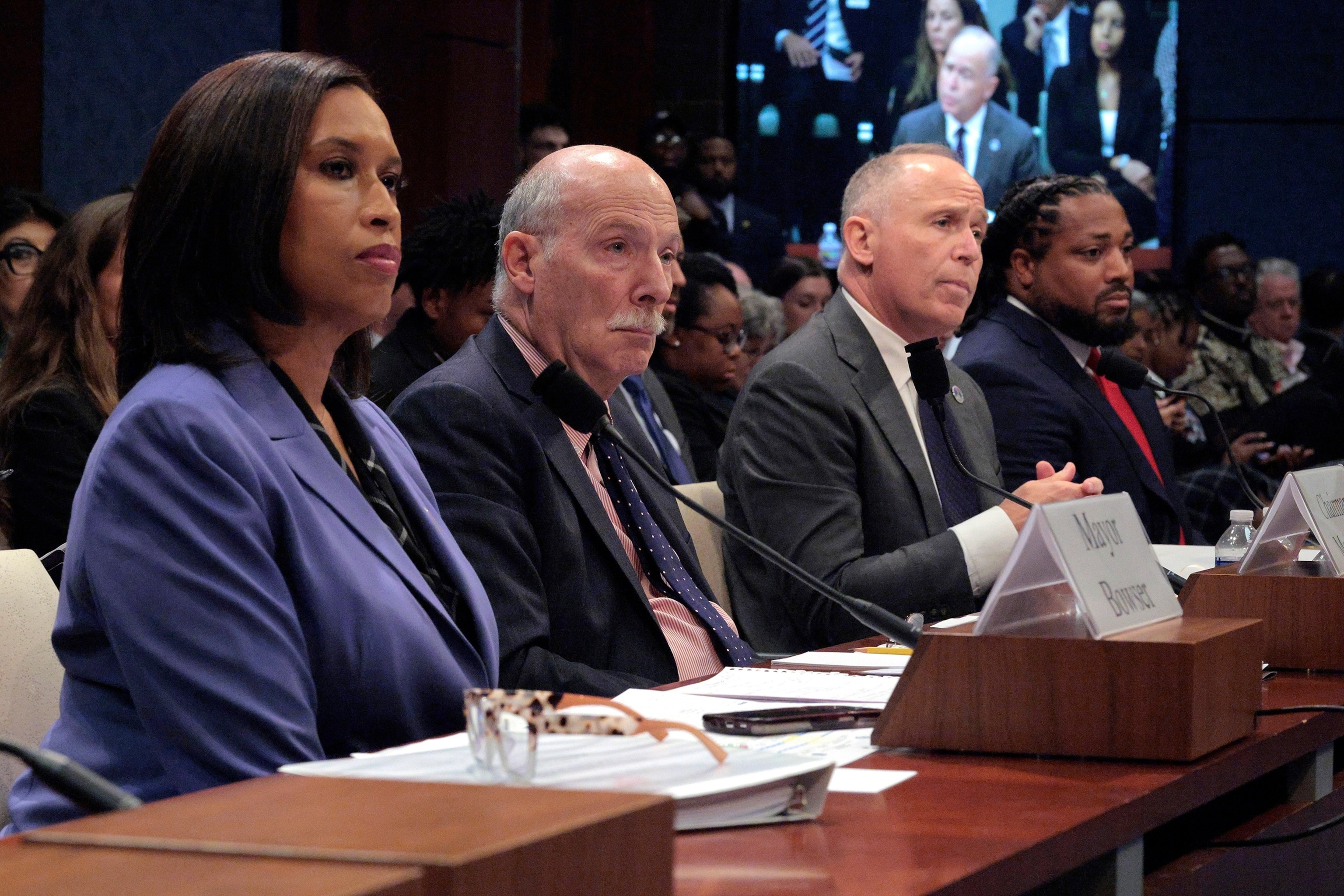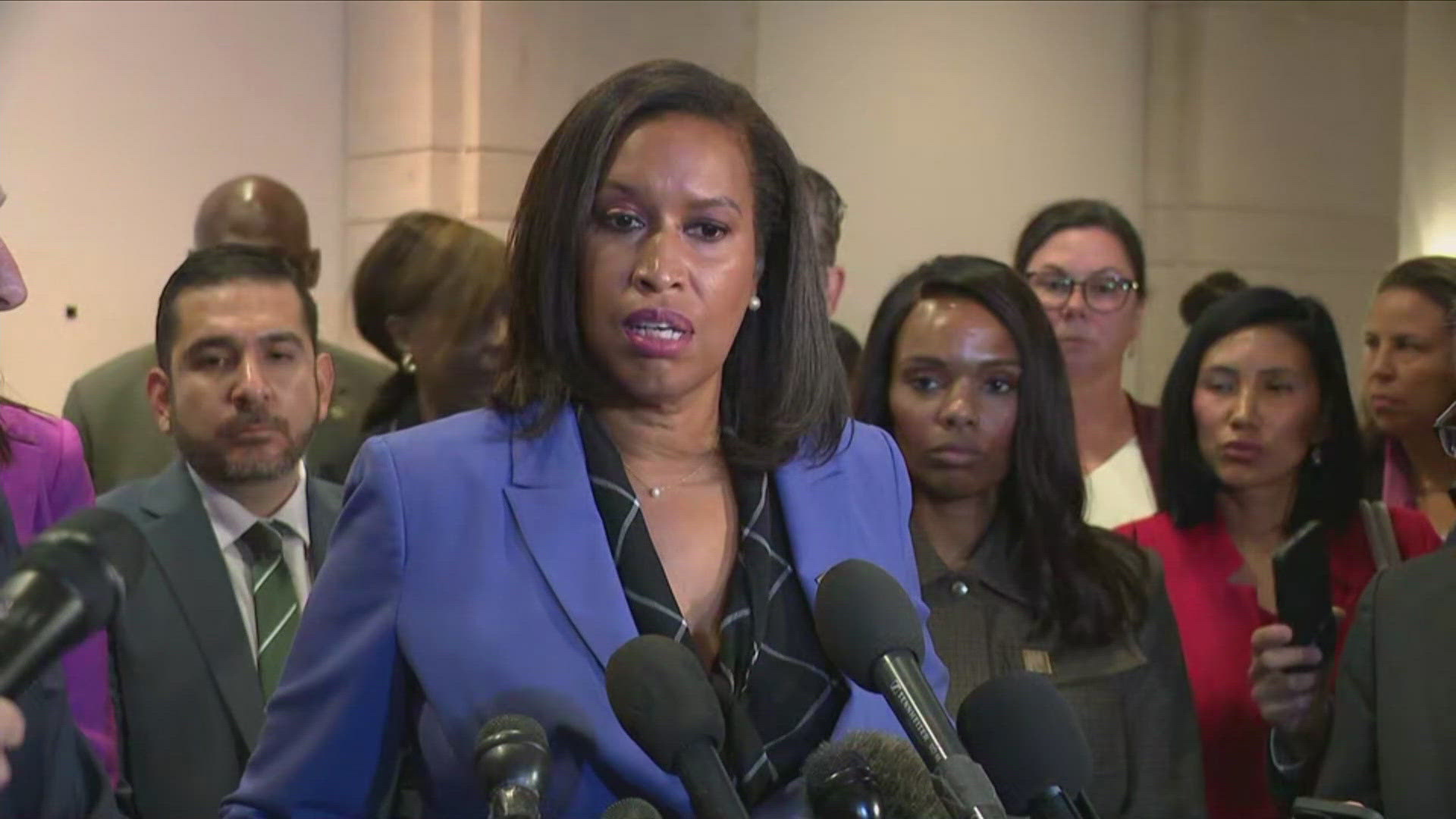
In a fiery exchange that underscores the growing political battle over crime statistics and public trust, Representative Jim Jordan pressed Washington D.C. Council Chairman Phil Mendelson over the city’s crime reporting practices.
At the center of the clash was a newly popular classification called “taking property without right,” a phrase that Jordan argued was a deliberate attempt to obscure the reality of theft and manipulate crime data.
The exchange, filled with pointed questions, evasive answers, and repeated calls for clarity, highlighted a fundamental dispute: whether authorities are being transparent with the public about crime or whether they are disguising the severity of the problem through semantic reclassification.
Jordan repeatedly asked Mendelson to define “taking property without right.” Each time, the Chairman’s answers grew more ambiguous. Jordan framed the issue as simple common sense.
In his words, “Why not just call it stealing? That’s what we’d all say. Someone takes something that belongs to you, we call it stealing. Why create this new category?”
Mendelson, however, avoided providing a straightforward answer. At one point, he admitted, “Well, that would be theft.” Yet when pressed further, he retreated, explaining that the classification came from the criminal code and that as Chairman he could not speak to “that particular offense.”
Jordan, unsatisfied, pressed again: “What’s taking property without right? What’s taking property without right?” The insistence was met with repetition and deflection, as Mendelson pointed to collateral data such as ShotSpotter gunshot counts dropping by 29 percent from 2023 to 2024. But Jordan cut through the detour: “Taking property without right was the question. What does that mean?”

The back-and-forth exposed the deep frustration between lawmakers who demand plain language and those who defend technical legal distinctions. The more Mendelson dodged, the more Jordan seized on the opportunity to paint the situation as deliberate obfuscation.
The spark for the confrontation was a statistic that Jordan cited: a 500 percent increase in incidents classified as “taking property without right.” The sheer magnitude of that growth raised alarms, particularly when contrasted with the impression city officials have been projecting about overall crime trends.
Critics argue that by rebranding theft as “taking property without right,” local officials can claim theft rates are stable or declining while shifting thousands of incidents into a newly named category.
To the public, the nuance between “theft” and “taking property without right” is meaningless; both describe the act of stealing property that does not belong to the perpetrator. Yet in statistical reports, the difference can create dramatically different impressions of safety.
Supporters of Jordan’s critique say that this is nothing short of “cooking the books,” manipulating data to reassure citizens while concealing rising crime.
Law enforcement voices, including union leaders, have echoed this concern, warning that crime classifications are being altered in ways that minimize public alarm at the expense of transparency.
Mendelson’s defense rested on the idea that criminal offenses often have multiple shades, ranging from misdemeanors to felonies, and that categorization is a matter of legal precision.
He repeatedly told Jordan that he could not speak to the “particular case” or “particular offense” in question, suggesting that such definitions are the domain of prosecutors and the criminal code, not city leaders.

Yet his reluctance to offer a clear explanation fed Jordan’s point. When Jordan asked, “Why not call it theft?” Mendelson initially conceded, “That would be theft,” but then returned to hedging, asserting that the law provided multiple possible charges depending on circumstances.
For observers, the effect was damaging. By failing to explain the classification in plain terms, Mendelson appeared evasive, reinforcing the perception that the new terminology was less about legal necessity and more about political cover.
The confrontation was more than a clash of personalities. It touched on core political issues: public safety, transparency, and the widening trust gap between officials and citizens.
For Jordan and his allies, the episode becomes a powerful talking point. They can argue that progressive city officials are more concerned with managing optics than addressing crime, and that ordinary people are the ones who suffer when statistics are sanitized.
The 500 percent surge in the new classification provides an easy soundbite to illustrate claims of manipulation.
For Mendelson and city leaders, the challenge is to defend the complexity of legal categorization without sounding deceptive. They argue that crime data must reflect the nuances of criminal law, but in a political environment where soundbites matter more than technical distinctions, that defense falls flat.
The optics of appearing unable—or unwilling—to answer a simple question like “What does taking property without right mean?” risks eroding public confidence not only in crime data but in city leadership itself.
The clash also fits into a broader national debate. Across the country, urban crime has become a flashpoint issue, with Republicans accusing Democratic officials of downplaying rising violence and theft.

Crime statistics, rather than calming fears, have often intensified them, as citizens see disconnects between their lived experiences and official reports. By focusing on the language used to classify crimes, Jordan tapped into the public’s suspicion that numbers are being manipulated.
His repeated insistence on calling theft what ordinary people call theft underscored a populist demand for plain speech. The message is clear: crime should be measured in terms people understand, not hidden behind bureaucratic labels.
This narrative resonates beyond Washington, speaking to voters nationwide who feel leaders are out of touch. The debate over whether “taking property without right” is simply “theft” may seem technical, but it has become symbolic of the larger fight over honesty in government.
Mendelson’s repeated refrain—“I cannot speak to that particular offense”—illustrated a broader strategy often used by officials facing tough questioning. By appealing to technicality and deflecting to unrelated data, leaders hope to run out the clock on hostile questioning.
But in this case, the strategy backfired. Each evasion gave Jordan another opportunity to hammer home his point: the public deserves clear answers. Every time Mendelson sidestepped, Jordan rephrased and asked again, highlighting the absurdity of not being able to explain a basic term.
The spectacle reinforced perceptions of stonewalling and reinforced the narrative that crime data is being intentionally muddied. In the age of viral video clips, the repeated “What does that mean?” exchanges are tailor-made for soundbites and political ads.
For the public, the exchange speaks to deeper anxieties about safety and trust. Citizens want to know whether crime is truly being reduced or whether leaders are playing semantic games. When categories like “taking property without right” spike by 500 percent, it is not surprising that people feel misled.
The evasiveness of officials fuels skepticism, and in a political climate already charged with distrust, the optics are devastating. Even if the classification has a legitimate legal basis, the lack of transparency erodes credibility.

Ordinary voters are unlikely to parse statutory language; they want plain answers to plain questions.
Jordan’s aggressive questioning captured that sentiment, channeling public frustration into a demand for honesty. Mendelson’s inability to satisfy that demand left an impression that will linger far longer than the hearing itself.
The confrontation raises key questions for policymakers and citizens alike. Should crime data be reported in terms that align with everyday understanding, or should it reflect the technicalities of the criminal code?
Is there a legitimate reason to classify theft as “taking property without right,” or is this simply an effort to downplay alarming trends?
For Congress, the exchange may fuel calls for federal oversight of how crime statistics are collected and reported in major cities. For voters, it may become a litmus test of which politicians are seen as straight talkers versus those who hide behind jargon.
The political ramifications are especially significant as crime continues to rank high among voter concerns. If Republicans can successfully frame crime data manipulation as a form of deception, it could become a potent weapon in upcoming elections.
Conversely, if Democrats cannot explain their classifications in plain terms, they risk alienating even sympathetic voters who crave clarity.
The clash between Jim Jordan and Phil Mendelson over “taking property without right” crystallizes a central theme in American politics today: the struggle between transparency and obfuscation, between plain language and bureaucratic jargon.

Jordan’s insistence on calling theft what ordinary people call theft resonated with common sense and tapped into public frustration with leaders who appear evasive.
Mendelson’s reliance on technicality and refusal to provide clarity only deepened suspicions that crime data is being manipulated to present a rosier picture.
The 500 percent rise in the new classification is not just a statistical anomaly; it has become a political symbol. It represents the growing divide between government narratives and public perception, between statistics and lived reality.
As the debate continues, one truth remains: words matter. When crime is rebranded under obscure labels, it undermines trust. And when leaders cannot answer the simplest of questions—“What does that mean?”—the public’s confidence in their honesty erodes.
This confrontation will not be forgotten. It will echo in campaigns, in debates, and in the broader struggle over how America defines truth in politics.



